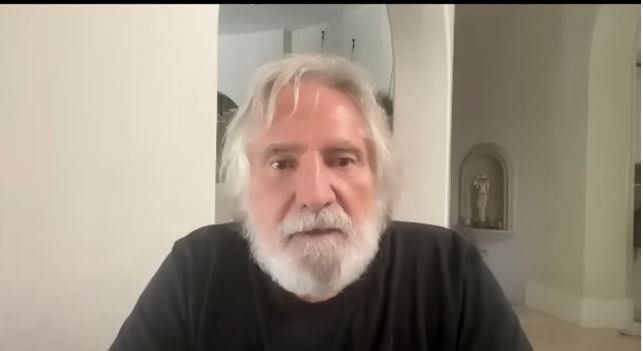
The financial success of Geezer Butler, who amassed an impressive $70 million, is indicative of a career that progressed beyond eerie lyrics and thundering riffs. His journey from a humble upbringing in Birmingham to global renown as Black Sabbath‘s bassist is a testament to the strength of creativity. Butler’s steadfast dedication to his work—along with his profound philosophical understanding—has resulted in significant financial gain, cultural significance, and enduring respect over the previous fifty years.
Butler managed the band’s early finances in a very strategic way by using his early business instincts. He had a unique advantage in a rock scene that is frequently linked to chaos and poor management because of his experience working as an accountant for a steel company. Butler struck a strikingly successful balance between his creative output and personal restraint, while other musicians struggled financially as a result of bad contracts or extravagant lifestyles. The financial instability that many of his peers experienced was greatly lessened by this combination.
Geezer Butler – Key Information
| Attribute | Details |
|---|---|
| Full Name | Terence Michael Joseph Butler |
| Known As | Geezer Butler |
| Date of Birth | July 17, 1949 |
| Age | 76 |
| Nationality | British |
| Birthplace | Birmingham, England |
| Profession | Musician, Songwriter, Lyricist |
| Notable Bands | Black Sabbath, Heaven & Hell, GZR |
| Active Years | 1967 – 2025 |
| Net Worth (2025) | $70 million |
| Marital Status | Married to Gloria Butler |
| Children | Two sons – Biff and James |
| Current Residence | Los Angeles, California |
In addition to playing bass, Butler wrote lyrics that addressed existential dread, social decay, and spiritual confusion during the 1970s, when Black Sabbath was revolutionizing heavy metal. These themes are still eerily relevant today. He was regarded as one of rock’s most intelligent forces due to his ability to translate such themes into music. Despite being frequently missed in dramatic headlines, these contributions were crucial to the economy. Royalties from albums like Paranoid and Master of Reality continue to be earned, guaranteeing a very effective source of income well into his retirement.
Interestingly, Butler’s impact went far beyond Black Sabbath. Butler maintained active engagement with new audiences through strategic partnerships with acts such as Heaven & Hell and GZR, as well as frequent collaborations with Ozzy Osbourne. Through his involvement in several Sabbath eras—original, Dio-led, and the final reunion—he consistently brought his musical presence to new audiences. As the live music industry grew in the early 2000s, Butler was able to take advantage of both nostalgia and fresh interest thanks to this visibility.
His autobiography Into the Void, published in recent years, gave fans a remarkable look into a man who is frequently surrounded by mystery. Butler emotionally connected with readers through poignant memories and amusing admissions. Not only did this memoir pique interest, but it also created a new source of income and solidified his reputation as a speaker of introspection rather than raucous spectacle. He made his story interesting and approachable by publishing both print and audio versions, which he narrated himself. This was a particularly novel approach in the aging rock memoir genre.
Butler followed a more subdued but steadily lucrative route, while his bandmate Ozzy Osbourne used controversy and television to create a multimedia empire. In contrast to rock’s typical excesses, his frugal lifestyle, which is based on vegan ethics, anti-materialism, and a strong sense of familial loyalty, has been surprisingly affordable. He keeps a realistic perspective on fame and wealth while living in Los Angeles with a number of rescued cats. Butler’s principles kept him concentrated on important work, whether it was writing a riff or fighting for animal rights, in contrast to those who sought fame for its own sake.
Butler’s duality is reflected in the stark contrast provided by his sons. James focused on political theory and academia, while Biff pursued music in a nu metal band. The very qualities that enabled Butler to maintain his relevance and financial success are reflected in this fusion of creative and intellectual ambition. He adjusted to shifting markets rather than depending only on nostalgia, rejoining Black Sabbath in 2013 for a new studio album that peaked at number one. His net worth increased dramatically as a result of that project and the subsequent international tour, demonstrating how his legacy could continue to inspire new growth.
Butler’s story highlights the value of long-term planning in creative industries for both fans and financial analysts. His endorsements of EMG pickups and Lakland basses were not hasty; rather, they complemented his technical tastes and established reputation in the industry. Every action was planned to bolster his artistic abilities and increase the legitimacy of his brand. Butler created a career that is both financially stable and artistically satisfying by balancing moral principles with sound financial judgment.
Butler’s unexpected appearance at a Foo Fighters show in Birmingham in 2024 sparked fan conversations again, demonstrating that he is still admired even after retiring. That instance was emblematic not only of a decades-long career but also of how perseverance and modesty can maintain one’s influence long after the last curtain has fallen. It demonstrated that success that is based on genuineness endures.
